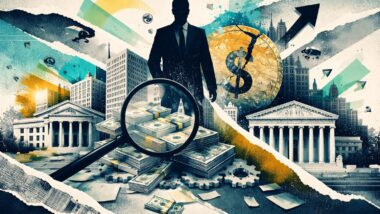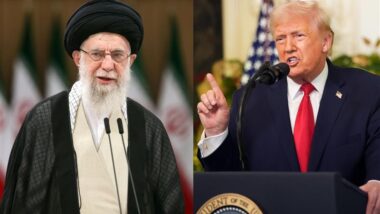
Ouça este conteúdo
The decision to block X, along with the freezing of Starlink's assets—meant to ensure the internet provider pays fines imposed by Justice Alexandre de Moraes on the social media platform—has raised concerns about legal uncertainty in Brazil, according to experts interviewed by Gazeta do Povo.
They also warn that both decisions negatively impact foreign investment in the country and harm key sectors of the national economy, including job creation and income generation. The decision to block X was unanimously upheld by the Supreme Court's First Panel on Monday (2), while on Friday (30), Justice Cristiano Zanin rejected Starlink's appeal to lift the freeze on its bank accounts.
According to Hugo Garbe, professor of Economics at Universidade Presbiteriana Mackenzie, the decisions by Moraes and the STF undermine Brazil’s legal certainty. Garbe explains that a country's legal framework is a crucial factor in assessing investment risk. While indicators like interest rates can be forecasted, legal matters are often highly unpredictable. As a result, decisions like those by Moraes and the STF have a significant impact on the country's risk evaluation.
The expert notes that "capital is cowardly," a common saying in the investment world that reflects investors' aversion to risk. In this context, any legal instability can seriously affect the decisions of international capital funds—on which Brazil heavily relies—regarding investments in the country's companies. Garbe points out that 60% of the Brazilian stock market's funds come from international investors, and the blocking of X and Starlink’s accounts could prompt them to reconsider their investment strategies.
Marcelo Faria, CEO of the São Paulo-based think tank Instituto Liberal, explains that if investors see a judge blocking the accounts of international companies and banning social media platforms based on questionable rulings, they might think twice about putting their money in Brazil. “Would you still invest millions of dollars in such a country or look elsewhere? The answer seems obvious,” he says.
Moreover, Faria emphasizes that there are alternative investment destinations in the region, such as Argentina, which is now moving toward economic freedom, less state interference, and greater legal security.
Musk himself was one of the first to warn about the impact of Moraes's decisions on investments in Brazil on Thursday (29), before the social media platform was suspended.
In a post on X, Musk supported the claims of journalist Michael Shellenberger, one of the key figures behind the Twitter Files revelations in Brazil. Shellenberger argued that the country had devolved into a “dictatorship” led by President Luiz Inácio Lula da Silva and Justice Moraes, who he said were “crushing free speech and the free market.” He further asserted that “Brazil is no longer a safe destination for foreign investments, and its currency should reflect that.”
Top investor says Brazil is becoming “uninvestable” after X suspension
On Sunday, September 1, after X was already blocked in Brazil, American investor Bill Ackman weighed in. The founder of Pershing Square Capital, a hedge fund management firm overseeing $18 billion (R$88.4 billion) in assets, stated that “the illegal shutdown of X and the freezing of Starlink’s accounts are rapidly putting Brazil on a path to becoming uninvestable. China made similar moves, leading to capital flight and collapsing valuations. The same will happen to Brazil unless they quickly reverse these illegal actions.”
Hugo Garbe echoed Ackman’s concerns, emphasizing that investment funds like Pershing Square have stringent risk management guidelines, with legal certainty being the most crucial factor. He noted that Brazil’s risk profile had already deteriorated within just two hours of Moraes announcing the blocking of X on Friday (30).
He explains that this creates a cascading effect: fewer investments lead to less capital flowing into the stock market, leaving companies with limited resources to raise. With reduced cash flow, businesses are unable to pursue expansion plans, build new factories, create jobs, or raise wages. Ultimately, it’s the Brazilian population that suffers the most from these consequences.
Garbe also highlights a potential unseen impact: the number of companies that may have been planning to invest in Brazil, open factories, or expand their operations, only to suspend their plans or adopt a wait-and-see approach regarding Brazil’s legal environment. "These bizarre decisions show a lack of economic understanding by those who made them," the professor said.
Marcelo Godke, an expert in Business Law and Capital Markets, shares this view. He adds that countries with a history of respecting free speech will not look favorably on the decision to block X. “A typical European or American entrepreneur becomes very hesitant to invest here because they start to see that there isn’t a proper legal framework. This will end up being detrimental to the country’s image as a whole,” he explains.
Freezing Starlink’s assets worsens legal uncertainty
The freezing of Starlink's accounts in Brazil was an even more drastic step, further exacerbating legal uncertainty, according to Garbe. Moraes's order was made public late last week.
The company is affiliated with SpaceX, which specializes in launching rockets, deploying satellites, and advancing space travel. However, neither SpaceX nor Starlink has any direct connection to X, as they are not part of the same corporate group, where separate legal entities collaborate for shared interests.
This separation applies both in Brazil and the United States, where both companies are based. Additionally, Musk is only a minority shareholder in Starlink, owning 42% of its shares. In other words, the court froze the assets of an internet provider—unrelated to X—to ensure the payment of fines levied against the social media platform.
According to Marcelo Godke, Brazil already had issues with its labor justice system, which often fails to respect corporate law, and with tax authorities that, in his view, “are only focused on increasing taxes, choking economic activity. Now, measures like this make it even clearer that companies have no protection.”
As a result, he argues that Brazil will become an increasingly unattractive destination for investors. Despite its large population, Godke notes that the Brazilian market holds little appeal for many companies due to the low average income. Additionally, the country lacks a framework of true economic freedom.
On Saturday (31), President of the Brazilian Chamber of Deputies Arthur Lira (PP-AL) told attendees at a financial market event that the legal issues surrounding Musk “should never have escalated to involve Starlink’s accounts.”
“This is not my concern but the concern of investors, of many people who have businesses in Brazil. It is about legal uncertainty. I could be wrong, but the legal personality of one company is completely different from the other. That’s why this freeze raises concern,” Lira said.
TV host Luciano Huck also expressed disagreement with the decision. Speaking at an event hosted by Esfera Brasil in Rio de Janeiro, Huck said he was against freezing Starlink’s assets.
"I’m against what happened today. I think it’s terrible for Brazil when the judiciary interferes so forcefully in companies’ day-to-day operations. It creates unnecessary legal uncertainty. We need security... We are at a moment where we need to sit down, talk, and understand the changes happening," Huck said.
Esfera Brasil describes itself as an organization that fosters thought and dialogue about Brazil, a think tank that brings together entrepreneurs and the productive class.
Huck was alongside Rio Governor Cláudio Castro (PL), who also stressed the need for dialogue and said that social media users must have the “courage” to stand up against authorities, including political leaders.
Regarding the freezing of Starlink’s assets, Marcelo Faria of the Instituto Liberal referenced Law 13.874/2019, also known as the 'Economic Freedom Act,' which amended the Civil Code to clarify that 'a legal entity is distinct from its shareholders, associates, founders, or directors,' except in cases of fraud, criminal activity, or the misuse of corporate assets.
Faria argues that by freezing Starlink's accounts—a publicly traded company in New York where Elon Musk holds only 42% of shares—Moraes "sends yet another message" to international investors. This action portrays Brazil as an unstable country where a Supreme Court justice can arbitrarily block a global company's accounts or suspend its main activity—as seen with X—at will.
Blocking X and VPN impacts an entire sector of the economy
Beyond the external impacts, the blockade also has direct effects on the national economy. Pedro Magalhães, co-founder and CTO of Ether Private Bank, explains that the financial fallout from blocking X is immense, as many companies depend on social media platforms for advertising, marketing, and even product sales.
These platforms also provide companies with valuable user data for these purposes. Additionally, influencers from various niches depend on monetizing their profiles as a consistent source of income.
The impact goes even further. Magalhães explains that X’s operational tools are integrated with many other businesses, and losing access could severely disrupt them. Some of the platform’s technological solutions are used by startups for tasks like authentication (verifying access to devices or systems) and for tool development, which relies on X's unique codes and features.
According to the entrepreneur, this entire chain was simply cut off overnight. A comparison would be if the government suddenly prohibited companies that supply basic services, like CSN or Petrobras, from operating. In X’s case, migrating to other platforms is not an option, as the solutions provided by the big tech company are unique.
Another issue is the willingness of global tech companies to launch products in Brazil. “If X was blocked, what’s to stop AI applications or other technologies from facing the same legal insecurity tomorrow? The entire market slows down, and companies may prefer to launch their products in other countries,” he says.
Alongside the suspension of X in Brazil, Moraes imposed a fine of R$50,000 per day for anyone using the platform while it remains blocked. This applies, for instance, to people accessing X through VPNs.
Regarding VPNs, Magalhães explains that the technology is widely used by some companies for security reasons, and restricting its use forces them to rethink their procedures.
Starlink may be banned from the country, escalating legal uncertainty
The situation could worsen. On Monday (2), Anatel president Carlos Baigorri stated that Starlink may lose its license to operate communication services in Brazil. This penalty could be enforced if the company is found to be disobeying court orders, such as the one to suspend access to X, as directed by Justice Alexandre de Moraes.
Starlink became Brazil's largest satellite broadband provider this year, serving 200,000 users. The company plays a crucial role in providing internet access to the Brazil’s Legal Amazon, with antennas installed in 90% of the region’s municipalities, as reported by BBC News in Brazil. Most of these municipalities are in remote areas with no traditional broadband infrastructure.
Marcelo Faria highlights that Starlink not only provides internet access to private subscribers but also to military equipment, Navy ships, and public hospitals and schools in remote areas of the country. Its departure from Brazil would have significant repercussions.
After its initial appeal was denied by Justice Zanin on Friday (30), Starlink submitted a new request on Monday (2), asking him to reconsider the asset freeze, arguing that it was imposed without giving the company a fair opportunity to defend itself, according to G1.



